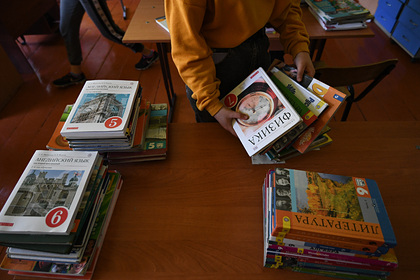
There are gender stereotypes in Russian school textbooks. These results were shown by a study by the United Nations Educational, Scientific and Cultural Organization (UNESCO), which came to the disposal of RIA Novosti.
UNESCO analyzed 30 education systems in Central and Eastern Europe, the Caucasus and Central Asia, producing the report “For all means for all”.
According to the report, stereotypes are related to professions and activities. “Gender stereotypes are still encountered in primary school textbooks: women are portrayed as housewives, and men as workers, soldiers and scientists,” the study notes.
The report also specifies that more than 90 languages of the peoples of Russia are taught in Russian schools, and the training itself is conducted in 30 languages of the peoples of the country. The textbooks contain information about the history and culture of indigenous peoples, but in general access to such information is “not systematized and limited,” the authors of the study noted.
The report was prepared by the World Education Monitoring Report (UNESCO) team, the European Agency for Special Needs and Inclusive Education and the Network of Education Policy Centers. The analysis draws on the details of the steps being taken in each country to tackle inclusiveness issues.
Currently, UNESCO, headquartered in Paris, has 193 Member States. This UN agency was created in 1945 by 37 countries. The United States, which stopped paying contributions to the organization, left it permanently in 2018. Following them, Israel announced its withdrawal from UNESCO.

